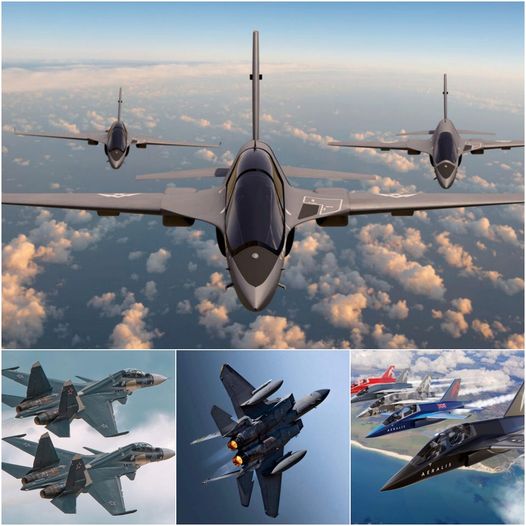Honeywell signed a memorandum of understanding at the Paris Airshow with Aeralis to integrate the F124 turbofan into the British company’s new modular aircraft. Aeralis has been marketing an innovative modular concept for a new jet trainer and light combat aircraft. It has designed a fully adaptable common core fuselage while using different wings and engines depending on the mission.
Honeywell insists that the F124 also is adaptable. John Guasto, v-p of defense and space, said that the engine delivers “the reliability, thrust, and affordability that competitive offerings simply cannot match.” The F124 already features on the Italian M346 trainer.

Separately, Honeywell responded to the announcement that Collins Aerospace began testing its Enhanced Power and Cooling System that the Raytheon Technologies company has pitched to displace Honeywell’s incumbent Power and Thermal Management System (PTMS) on the forthcoming Block 4 variant of the Lockheed Martin F-35 fighter.

“Honeywell’s PTMS has met all the requirements set forth by Lockheed Martin,” the company said. “Honeywell continues to work with Lockheed Martin and the Joint Program Office to meet anticipated cooling requirements.” The company said it remains under contract with Lockheed Martin to significantly increase the cooling that its PTMS provides.

In an interview with AIN on Tuesday, Guasto described the company’s ambitions in the defense business for its product line, which includes avionics, wireless connectivity systems, mechanical components, and other products, as well as engines.

He said that the company’s JetWave MCX satcom system offers high bandwidth and anti-jam capability particularly suitable for UAV data feeds and C2. Honeywell promotes counter-GPS jamming products for various aircraft produced by overseas airframers such as Korea Aerospace Industries and Turkish Aerospace. Honeywell has a facility at Brno in the Czech Republic that has begun producing various non-ITAR systems, including hybrid fuel cells and propulsion for UAVs.
